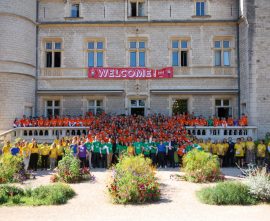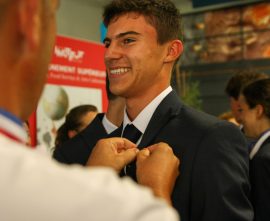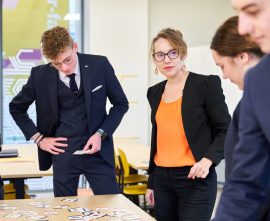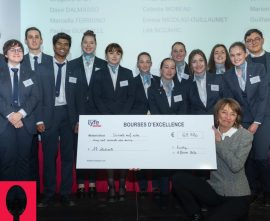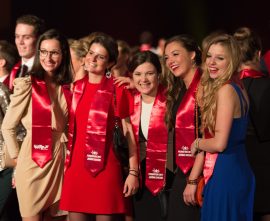Through its research centre, Institut Lyfe (formerly Institut Paul Bocuse) is involved in active, high-impact research in management sciences, with a first-rate faculty and multidisciplinary scientific research at the service of food transition.
BIG IMPACT RESEARCH
IN MAJOR MANAGEMENT DISCIPLINES
At Lyfe, we are ever committed to academic excellence and to producing new scientific knowledge that is valuable to our students, companies in our sectors and society as a whole.
Management science research plays a key role in our ecosystem. It keeps us at the forefront of the latest developments and topical issues in hospitality-related fields from an economic, managerial, social and environmental perspective.
Our faculty is internationally diverse and comprises experts recognised in their field, with PhD and Master’s degrees, extensive practical and academic experience, and a passion for sharing their knowledge with students. Their research informs the content of our programmes and fosters the emergence of new courses. They regularly publish their works in the best French and international journals and take part in the most prestigious scientific conferences. The dissemination of their research findings motivates, inspires and guides our students in their path to professional success.
Choosing the Institut Lyfe (formerly Institut Paul Bocuse) is embracing excellence in professional education alongside the best professionals in our industries and pursuing academic excellence with research centres that set you apart.
… AND SCIENTIFIC EXCELLENCE IN THE SERVICE OF FOOD TRANSITION
The Institut Lyfe has developed a unique educational model that stands out from traditional higher education approaches. As the only French international higher education establishment to welcome 72 nationalities on its campuses, we offer courses from Bachelor’s to Master’s degrees, with a doctoral school in our Research Centre.
The work of our doctoral students is based on multidisciplinary research applied to hospitality, catering and the culinary arts, and contributes to improving the well-being of populations, regardless of age and the context of the meal or event. Three types of motivation drive their theses: pedagogy, science and application.
Doctoral students are registered in a local, national or international university doctoral school and defend a thesis in a specific scientific discipline. The problem statement of each thesis stems from a functional or societal issue and aims to advance scientific knowledge while considering practical applications.

